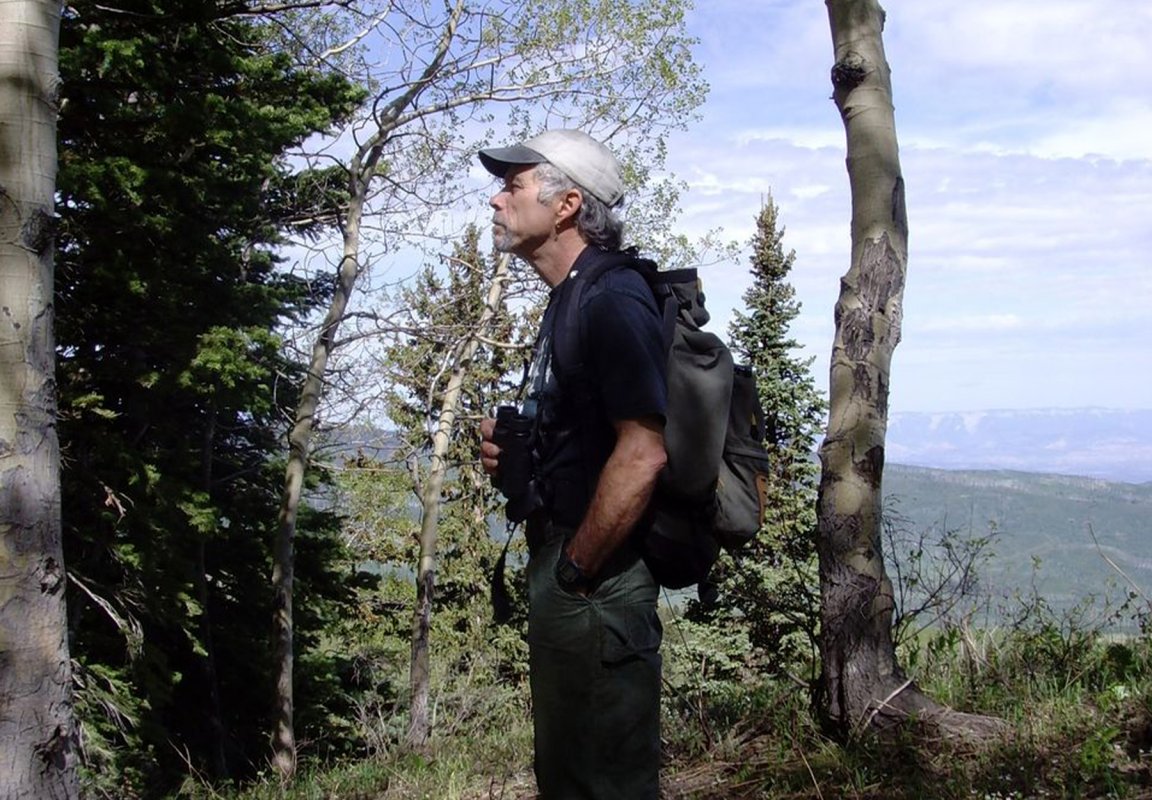A wildlife photographer was killed by a cow moose in Homer, Alaska, on Sunday while trying to take pictures of the cow, which had just given birth to calves. Dale Chorman, 70, was reportedly with another man when the moose charged them, knocking Chorman down and kicking him repeatedly. Medics pronounced Chorman dead at the scene, according to a press release from the Alaska State Troopers.
Chorman died “doing what he loved most,” according to his son, Nathan Chorman, who shared a statement with media on Monday that gives a basic account of what transpired.
KTUU News reports that Chorman had taken a few pictures of the cow moose that morning as it was giving birth to two calves. He then convinced one of his friends to return to the location with him. They were on Chorman’s land the whole time, according to the statement by his son.
“They were going down to see how close they could get to see if they could get any pictures of the newborn twins, but it was a really thick, real dense part of the woods,” Chorman’s friend and local journalist Tim Kizzia told Alaska Public Media on Tuesday. “It was thick alder and elderberry, like we know around here, and suddenly out of nowhere, that moose was coming at them. They hadn’t seen it.”
The two men ran, Kizzia explained in a separate interview, and by the time Chorman’s buddy turned around, Chorman was on the ground with the cow moose standing over him. State troopers were notified of the attack at 11:52 a.m. on May 19. By the time first responders arrived, Chorman was already deceased, and the moose had left the area. Wildlife officials said they were still looking into the attack as of Sunday, but they have not provided any updates on the investigation.
“Dale was highly experienced around wildlife. He was intimately familiar with nature, and had no naivete about its danger. This was not a hapless fool stumbling into danger — this was a person who went out looking for a great photo, knowing the risks, and got caught in a dangerous moment,” Nathan writes. “The moose, obviously, is not at fault. To the concerned neighbors I say — quell your primate spear rattling. The ungulate mother need not die. She was just protecting her offspring. Dale had remarked the previous day that the brush was particularly thick this year — thick enough to get closer than intended, and surprise a wild animal by accident.”

“On a given day, nobody expects to die on their own property doing something routine, even when the routine is fairly dangerous,” writes Nathan. “But he would have accepted this outcome. Whether for the cranes, or the calves, this was his favorite time of year. The truth is he died doing what he loved most — or, *close* to most, as moose have a distinct lack of feathers. Whether birds, or moose, or bears, I know you’ve all loved his photos over the years. He loved sharing them with you.”
Spring is one of the most dangerous times for encountering cow moose, which will act aggressively when protecting their young. (Bulls are more dangerous in the fall during the rut.) A biologist with the Alaska Department of Game also told reporters Monday that moose in Alaska are especially irritable after a long winter with near-record snowfall in some areas. In the event of a moose charge, ADFG recommends retreating to a safe place, or running behind a tree or another solid object.
